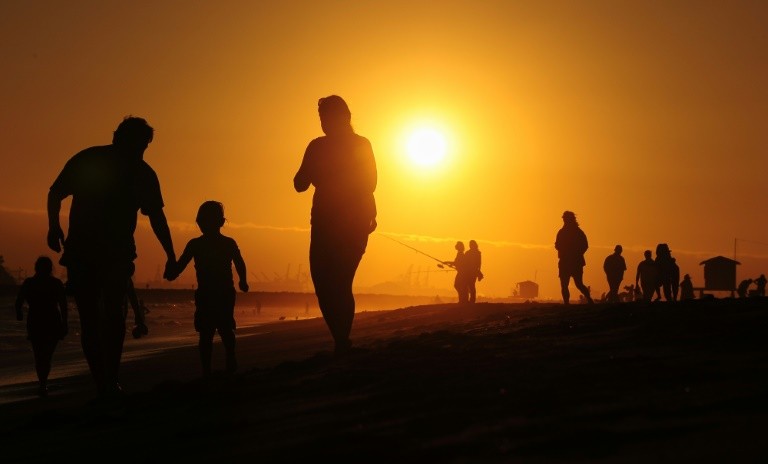Miami (AFP) – Americans who experience hot weather are more likely to believe global warming is real, while those in colder climates are more likely to be doubters, said a US study Monday.
Researchers looked at US beliefs about climate change on a county-by-county basis, and compared them to the frequency of residents’ exposure to record highs and lows, said the report in the Proceedings of the National Academy of Sciences.
Those who experienced more record highs were more likely to believe the Earth was warming.
“Conversely, Americans who live in areas that have experienced record low temperatures, such as southern portions of Ohio and the Mississippi River basins, are more skeptical that the Earth is warming,” said the report.
Many people confuse climate, which reflects long-term trends over decades, with weather, which happens over hours, days or seasons.
“One of the greatest challenges to communicating scientific findings about climate change is the cognitive disconnect between local and global events,” said co-author Michael Mann, associate professor of geography at George Washington University.
“It is easy to assume that what you experience at home must be happening elsewhere.”
In the United States, as many as one in four do not believe that global warming is real or that humans’ fossil fuel use is contributing to climate change.
According to Gallup poll data, the US public was also split over whether 2015’s record high temperatures in the modern era were caused by global warming or natural variations.
“Who do Americans trust about climate change; scientists or themselves?” said lead author Robert Kaufmann, professor in the department of geography at Boston University.
“For many Americans, the answer seems to be themselves.”
